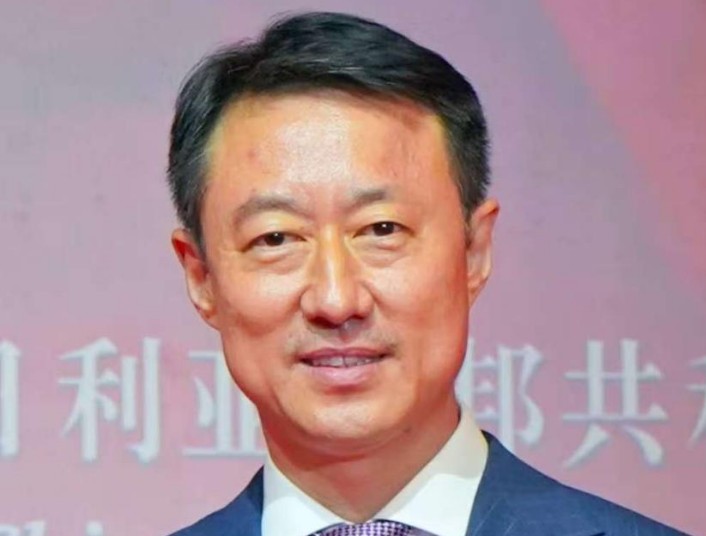On September 1, 2025, President Xi Jinping formally introduced the Global Governance Initiative (GGI) at the Shanghai Cooperation Organisation Plus Meeting in Tianjin, China. This visionary proposal reflects an acute awareness of today’s global realities and is driven by a clear set of values and a commitment to humanity. The GGI was created to answer a fundamental question facing the world: what form should global governance take, and what reforms are needed to shape a better system? At its core, the GGI offers Chinese insights and solutions, aiming to bring greater stability and predictability to an increasingly uncertain world.
As the international landscape undergoes rapid and profound transformation, old attitudes rooted in Cold War thinking, hegemonism, and protectionism persist. Humanity is contending with unmatched challenges amid a turbulent era, positioning global governance at a crossroads. Now, more than ever, the need to reinforce and enhance global governance is urgent. The launch of the GGI could hardly be more timely. Built on the foundation of the U.N. Charter and emphasizing inclusivity, cooperation, and shared benefits, the Initiative seeks to build a fairer and more equitable governance model—and to advance the vision of a future shared by all humanity.
The GGI is anchored in five essential principles:
- Sovereign equality: Every nation, regardless of size or power, should have an equal voice and share in the benefits of global governance.
- Respect for international law: Double standards have no place—rules created by a select few should not be imposed on others.
- Commitment to multilateralism: The United Nations must remain at the center of global governance efforts.
- People-centered development: Governance should empower people from all countries to participate and benefit from its outcomes.
- Emphasis on practical action: Effective governance requires real solutions and must keep pace with the evolving challenges of the world.
These guiding ideas are especially relevant for China’s engagement with Africa—and Nigeria in particular. Africa, home to 54 U.N. member states and the largest grouping of developing countries, is a critical player in international cooperation and multipolarity. Nigeria, with its large population and strong economy, is both a continental powerhouse and a leading voice of the Global South. Both history and present needs align: the partnership between China and Africa, and China and Nigeria, is a driving force for reform in global governance and for forging a more equitable global order.
The year 2025 also marks the 80th anniversary of the United Nations—the world’s first major experiment in coordinated global governance. Africa played a significant role in supporting China’s restoration to its lawful seat at the U.N. in 1971, with Nigeria casting a decisive vote. This launched a lasting partnership in global governance between China and African nations. Subsequent years strengthened this cooperation, from advancing the principle of “common but differentiated responsibilities” in climate change agreements to actively supporting more robust African representation within the United Nations. For example, China has persistently advocated for meaningful reform of the Security Council, prioritizing African interests to correct historic injustices.
China’s commitment to Africa’s role on the global stage is clear. In 2022, China supported and helped secure the African Union’s membership in the G20. The 2024 Beijing Declaration further amplified China’s support for a stronger African presence in global institutions, including encouragement for more African participation in the BRICS group—most notably, Nigeria’s recent entry as a BRICS partner, with China’s backing. These actions reflect China’s determination to support Africa’s aspirations and voice, embodying the spirit of mutual respect and cooperation that characterizes China-Africa relations.
This year also commemorates 25 years since the founding of the Forum on China-Africa Cooperation (FOCAC), a model of collaborative governance focused on consultation, mutual benefit, and real-world results. Through frameworks like FOCAC and its evolving initiatives—ranging from the “Ten Cooperation Plans” to the new “Ten Partnership Actions for China-Africa Collaboration on Modernization”—China has helped Africa tackle key challenges in infrastructure, healthcare, agriculture, and capacity building, always without attaching political strings. This pragmatic, action-based approach empowers African countries to thrive and actively shape a more equitable global system.
In September 2024, Nigerian President Bola Ahmed Tinubu’s state visit to China and participation in the FOCAC Beijing Summit led to the elevation of China-Nigeria ties to a comprehensive strategic partnership. Over the past year, both countries have seen rapid advances in every sector—more frequent exchanges, deeper strategic trust, stronger mutual support, and diligent coordination at the international level. Their partnership now stands as a shining example of successful South-South cooperation.
Looking at the broader picture, President Xi Jinping has, to date, put forth four major global initiatives: the Global Development Initiative (GDI), the Global Security Initiative (GSI), the Global Civilization Initiative (GCI), and the Global Governance Initiative (GGI). Together, these initiatives provide a comprehensive framework—four foundational pillars—for building a world community with a shared future. The GDI champions inclusive development, the GSI focuses on dialogue and peace, the GCI encourages cultural exchange and mutual learning, while the GGI guides reform and institutional improvement in global governance. Each pillar has its own focus, yet together, they inject much-needed positive energy and momentum into an uncertain world.
Under the GGI’s banner, China is committed to working with African nations, including Nigeria, to advance reforms in crucial areas like the U.N. Security Council and the international financial system. The goal: to enhance the effectiveness, responsiveness, and unity of global institutions, and to foster consensus on new challenges—whether in finance, artificial intelligence, cyberspace, climate change, global trade, or exploration of outer space.
China’s deepening cooperation with Africa—especially Nigeria—demonstrates the genuine potential of the GGI. By standing together, China and its African partners are better prepared to overcome shared global challenges and to forge a future marked by inclusivity, progress, and common purpose.









